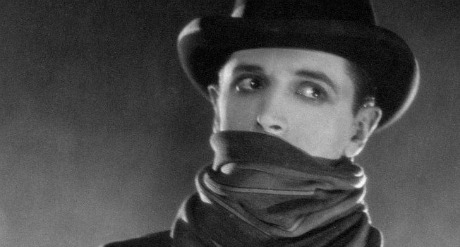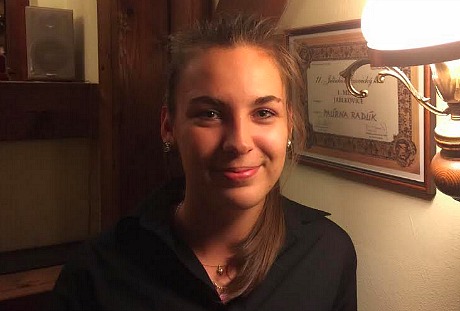A.O. Scott‘s Aloha review in the N.Y. Times is one of the kindest, bravest, warmest, most wonderful assessments of an allegedly Godforsaken film that I’ve ever read in my life. Yes, I stole most of that line from John Frankenheimer‘s The Manchurian Candidate but that’s beside the point. I’m wondering if the second wave of reactions to Cameron Crowe‘s film is going to be about pity, kindness, easing up, cutting the poor guy a break, sensible laments, etc. Now that the West Coast viewers are starting to attend early afternoon shows and East Coasters are three hours into the cycle, I’m asking HE readers if any soft pans can honestly be written or has Crowe’s rope just run out? I don’t mean to sound treacly or sentimental but I used to be one of Crowe’s journalist pallies and don’t want him to see go into a fetal-tuck position. This is a guy who once held mountains in the palm of his hand.
Daily
Paul Verhoeven Is Watching
I’m sorry to think this way but if the MIT cheetah robot’s motor and balancing skills are sophisticated enough to leap hurdles (and without padded robot feet!), how far away, technologically speaking, could a smart Robocop robot be? Five or ten years? Less? Not that any responsible party would want to build one, given the ramifications instilled by the films, but still…
Eisenberg’s Pain
Every actor who’s starred in a memorable, top-notch, award-worthy film soon realizes that the vast majority of films he/she will be offered in the wake of this landmark achievement will not be on the same level, or even close to it. And that must hurt. I’m betting, in fact, that once this realization has truly sunk in a wave of depression quickly follows. This is reality, Greg. Then they grim up and think positively: “Okay, most films are just okay or not bad and yes, some are crap, but I’m making good money and enjoying my off-screen life and I just have to hang in there and hope that I’ll be cast in something as good as The Social Network sometime within the next five or ten years…hopefully. Who knows?” Here’s a paragraph from a 15 year-old interview with Tony Curtis I did at a Beverly Glen delicatessen: “At one point I handed Curtis a list of his 120 films and asked him to check those he’s genuinely proud of. He checked a total of 18. He didn’t check The Vikings. He didn’t check The Outsider. He checked Houdini. Every film he made after Spartacus in 1960 up until 1968’s The Boston Strangler, he didn’t check. He checked his role as a pair of mafiosos — Louis ‘Lepke’ Buchalter in 1975’s Lepke and Sam Giancana in the 1986 TV movie Mafia Princess.”
Anyone Sampled San Andreas 4DX?
I realize there’s only one theatre in Los Angeles showing San Andreas with the 4DX experience (i.e., inside Regal’s L.A. Live plex), and that New York and other cities don’t have a 4DX option at all, but if anyone’s seen San Andreas this way please share. As I mentioned two days ago 4DX “was a big reason why I surrendered to San Andreas, which I saw on an IMAX-sized screen at Prague’s Cinema City Novy Smíchov. 4DX isn’t just about seats that shake and tilt and vibrate in synch with the action (which is what the D-BOX experience more or less delivers) but facial air jets, misty water sprays, leg ticklers, back pokers, fog simulators, scents and warm air. You don’t have to be too thick to understand the transcendent joys of real cinema — you just have to relax and embrace the dumb and go with it. And it’s cool — the perfect physical compliment to watching submental destruction unfold for the better part of two hours.”
Fast Car

Some kind of commercial was being filmed late yesterday afternoon inside Prague’s central train station. They were using a beautiful Tatra 77, built in the mid 30s, as a prop. From Wiki page: “The Tatra 77 was an automobile manufactured by the upper class Czechoslovakian automaker Tatra between the two series. T-77 is the first mass-produced car with an aerodynamic body. In four years, a total of 255 models were manufactured. Its successor, built in 1936, was called the Tatra 87.”

Even By Standards of Silent-Film Era, The Lodger Had Problems
Last night I saw Alfred Hitchcock‘s The Lodger (’27), a vaguely kinky, London-based parlor drama about the terror caused by a Jack The Ripper-type killer, called “The Avenger,” who mysteriously murders attractive blondes on Tuesday evenings. (We’re not told if he’s a stabber or a strangler — maybe he just eyeballs his victims and they drop dead on the spot?) Suspicions quickly surface that a recent arrival at a London boarding house — a tall, good-looking but oddly behaving fellow (Ivor Novello) — may be the killer. Hitch encourages you to weigh this possibility for a good 75% of the film until revealing that Novello is just a queer duck who’s looking to find the man who killed his sister. Novello’s innocence is first hinted at when Daisy (June Tripp), the daughter of the boarding-house owners as well as a model, begins to feel affection and attraction for him, which understandably infuriates her much-older detective boyfriend (played by Malcolm Keen, who was nudging 40 during filming but looked closer to 45 if not 50) and adds to…well, the uncertainty factor, I suppose.

The Lodger was the first Hitchcock film about an innocent man wrongly accused of a crime. It was also Hitch’s first commercial success (it pretty much launched his career) and was also the first film in which he performed a walk-on. (He’s seen from the rear during a scene in which the presses of a major newspaper are printing news of The Avenger’s latest killing.) But this is a rather stiff and primitive little film — more “interesting” than good. Portions are nicely framed and focused, and yes, Hitchcock manages to implant a notion that for certain wackos there’s a kind of erotic charge that accompanies the murder of pretty girls. But he was only 27 during filming with only two or three previous films under his belt, and he just didn’t have enough knowledge or polish at this stage in his life. Not enough, certainly, to satisfy a guy like me watching The Lodger 88 years hence.
Same Old Mumblecore-ish Slurrings, Mutterings, Whisperings
A clip from Marc Meyers‘ How He Fell In Love, a mumblecore infidelity drama that will screen at the Los Angeles Film Festival (6.10 thru 6.18), surfaced yesterday on Deadline. Pic is about a 20something downhead musician (Matt McGorry) falling into an affair with a married yoga teacher in her 40s (Amy Hargreaves). After watching this scene three times on headphones I began to understand parts of it. The sound technician was presumably following standard mumblecore protocol by making the dialogue sound murky and muffled — a word here, a phrase there. Hargreaves says something about “pent-up energy” and the fact that her marriage is child-less, and then she says, “Sissahduhnya sleeping with two men at the same time.” (The line actually reads “It’s not like I can be sleeping with two men at the same time.”) And then she says, “Does that make you happy?” (What kind of a dumb-ass line is that? Their affair has only just begun and therefore still hormonally flush, so why would McGorry be “happy” when she tells him she can’t go stereo?) In any event McGorry ups the mumblecore ante by replying “Huhhrburruhrrnn.” His actual line: “I can’t be jealous of your husband.” I don’t want to get bogged down in describing my hate flashes toward movies that make me struggle to hear their dialogue, but my feelings along these lines are very strong. Offer optional subtitles for streaming and Bluray and the problem goes away. Their call.
Crack in Dam, Water Flooding Valley, Crops Ruined, Farmers and Cows Dead In Mud
I know what it’s like to be dead. I know what it is to be sad. ‘Cause you’re making me feel like I’ve never been born…
Newsday‘s Rafer Guzman: “Imagine a candlelit dinner prepared by a top chef and served on the sands of a sparkling beach. Now imagine that the dinner has been boiling on the stove for something like two years and you’ve got Aloha, [which has] been overcooked into an unidentifiable, inedible mush. Aloha is one of those films whose characters behave and speak so irrationally that they no longer make any human sense at all.”

Variety‘s Andrew Barker: “Unbalanced, unwieldy and at times nearly unintelligible, Aloha is unquestionably Cameron Crowe’s worst film. Paced like a record on the wrong speed, or a Nancy Meyers movie recut by an over-caffeinated Jean-Luc Godard, the film bears all the telltale signs of a poorly executed salvage operation disfigured in the editing bay.”
Seattle Times‘ Moira McDonald: “Well-meaning but nearly unwatchable. Where’d you go, Cameron Crowe?”
The Hollywood Reporter‘s Shari Linden: “With the screenplay’s strained whimsy and pathos, not to mention its unpersuasive, at times incoherent musings on the politics of space exploration, Crowe squanders the star power at hand. As with another major miss by the writer-director, 2005’s Elizabethtown, the new film has the awkward feel of a repository for everything but the kitchen sink. The chemistry is mostly forced, the story without an emotional core. And though Crowe’s facility for language can be striking, here it never moves beyond self-consciousness.”
Wanderer
Prague is downshifty enough to leave room for something I probably wouldn’t get around to in Los Angeles — a screening of Alfred Hitchcock‘s The Lodger: A Story of the London Fog (’27) with live musical accompaniment. I’ve seen nearly all of the worthwhile Hitchcock films, but not this one. Tonight at 7 pm, or three hours hence.


Kate, a 20 year-old English-speaking waitress who works at Restaurace U Bile Kravy, an excellent little steak joint not far from Wenceslas Square.

The Whiteness, or Why The Old “Birds of a Feather” Rationale Doesn’t Cut It Any More and Why Mixed-Culture Characters Are Better Than European Anglo-Germanic Types
Reviews of Cameron Crowe‘s Aloha (Sony, 5.29) will finally pop later today. One presumes that reactions will be mostly non-adoring (here’s a review by The Stranger‘s Erik Henriksen). And yet a seasoned, been-around guy who attended Tuesday night’s all-media says that (a) it’s actually a fairly pleasing film and (b) his wife called it the most engaging she’s seen this year. (This will almost certainly turn out to be a minority view.) I won’t see Aloha until I return to the States on Monday…well, actually Tuesday as I’ll be catching a 7 pm Manhattan all-media of Entourage on 6.1.

In any event I’ve been thinking about the beefs against Crowe’s film by the Media Action Network for Asian Americans, which are basically that the Hawaii-based film ignores the multicultural nature of society in general (i.e., not just Hawaiian) by telling a story that is pretty much entirely about white people — Bradley Cooper, Emma Stone, Rachel McAdams, John Krasinski, Danny McBride, Bill Murray, Alec Baldwin.
“Caucasians only make up 30% of the population of Hawaii, but from watching this film, you’d think they made up 99%,” a MANAA press release reads. “This comes in a long line of films — The Descendants, 50 First Dates, Blue Crush, Pearl Harbor — that uses Hawaii for its exotic backdrop but goes out of its way to exclude the very people who live there. It’s an insult to the diverse culture and fabric of Hawaii.”
MANAA is mostly right. Nativism and multiculturalism are the reigning theologies today, and anyone making a film about a group of white people in a region or country in which the vast majority are non-white risks seeming a bit jaded, and certainly out of step with the times. On the other hand it should be allowable for Crowe, a white guy who grew up in Wonderbread San Diego in the ’50s and ’60s, to make a movie about a social realm in which he used to live in, and in which he probably to some extent still lives in in his head.
“B-Movie Gold”?
From Peter Debruge’s 1.31.15 Sundance review: “Maybe it wasn’t such a great idea for Kevin Bacon’s corrupt small-town sheriff to leave the keys inside his unlocked patrol car. And maybe he should have thought twice before tossing his gunbelt in the backseat and stuffing a beaten-and-bound criminal in the trunk. But all those bad decisions make for B-movie gold in Jon Watts’ Cop Car (Focus World, 8.7), a tight, easily marketable genre exercise that pushes its lean premise and all-around disrespect for authority to entertaining extremes, taking wicked delight in imagining what might happen if two 10-year-olds were to stumble upon an abandoned police cruiser and take it for a joyride.
Busy Corner in Los Feliz
The Aero is still my all-time favorite Los Angeles theatre — excellent repertory selections, first-rate digital projection. Closely followed by the Egyptian. But I won’t see 35mm shows at either venue for the simple reason that with very few exceptions, 35mm projection almost always guarantees a degraded experience. But the Vista, a first-run vintage theatre hanging by its nails, is probably the best place to watch a film in an old-timey atmosphere. (I’m not counting the downtown LA venues that occasionally host special-event screenings.) Digital plus 35mm, beautiful marquee, haunting pre-war decor, great-tasting popcorn, good enough seats. Cinefamily is my fourth favorite venue, especially if I’m able to sit in those cushy armchair-like seats near the front. For whatever reason I almost never think about going to the Nuart these days. And way, way, way down at the bottom of the list is Quentin Tarantino‘s New Beverly Cinema, which only shows 35mm and is therefore committed to perpetuating a kind of ’70s nostalgia time-machine atmosphere. If I never see another 35mm film it’ll be too soon. And I’m speaking as a former projectionist. And yet there’s something oddly alluring about seeing Fritz Lang‘s The Big Heat there on Wednesday or Thursday, 6.3 or 6.4. I know it won’t look or sound as good as the Bluray, but just once I want to see The Big Heat in a theatre.
